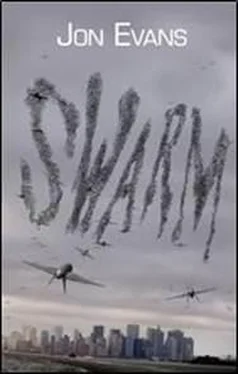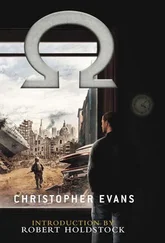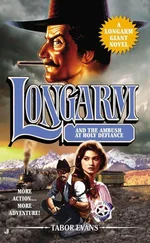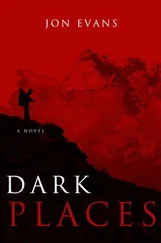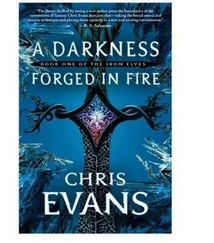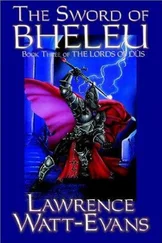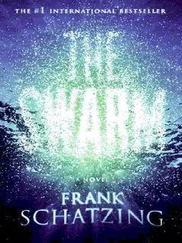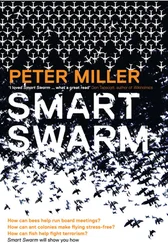“No,” he said, shattering that particular theory. “We’ve whitelisted the network. Only a fixed subset of commands are allowed through. Everything else is filtered out.”
Like a cell network that only allowed full and proper words in text messages. I opened my mouth and closed it again. That meant the override sequence, my last hope, would likewise be eaten by their radio network before it ever reached the drones. Dmitri was right. There was no escape.
“How did you find out?” I asked.
“Our secret friends among the Americans.”
I noted his use of the plural. Every time I thought it couldn’t get worse. I consoled myself that at least the deaths in New York were less my fault than I had thought; if I had tried to trigger the defanged kill switch when I had the chance, I would only have condemned myself to death for nothing.
“I’m glad you told us, James. I’m glad to see you are beginning to understand your situation.” Dmitri’s voice was strangely avuncular. “You will soon see that there are certain advantages. Over time we will expand your liberties. Think of this as a probationary period.”
“Right,” I said. “It’s just another job.”
“Exactly.” He remembered something amusing, and his twisted smile reappeared. “I’ve been meaning to tell you. A little tidbit you might appreciate. Do you know how we trained the Axons for New York? We used a copy of Gangs of Gotham ‘s virtual world.”
I shook my head, amazed and appalled. Gangs of Gotham was a massively multiplayer online game set in an exact virtual reproduction of New York City, down to individual buildings and trees. They had connected that simulated world to the neural networks’ visual inputs and taught them what routes to take, how to recognize their target territory. They had used a video game to help kill real people.
“It doesn’t even bother you?” I asked. “All those people dead?”
“Of course it bothers me. If the decision had been mine we would have struck Washington, not New York.”
I blinked. “Why Washington?”
“Because it is the capital of America, and America is a tumour on the earth,” he said with unexpected passion. “It devours art and beauty and culture and shits advertising and shopping malls. It rapes the earth, and the poor, and grows fat from their blood. Its people are drugged to keep them fat and quiet, jailed for the drugs they want, and charged their souls for ones they need. America is all the worst impulses of man given flesh, and its proudest hope is to turn all the rest of the world into little Americas. I am sorry that people died, James. Truly. But the United States is a cancer on the planet that needs to be eradicated, by whatever means necessary.”
“Jeez,” I said inadequately, awed by his hatred and eloquence.
He looked embarrassed, as if he knew he had said too much. “It’s late. I’m tired. Dana and Ortega are coming tomorrow. Is there anything else?”
“No,” I said.
The security guard escorted me back to my room. I waited for his footsteps to vanish away. Then I resumed work on my door. And after another hour of frustrating concentration and maddening near-misses, I finally popped open its lock.
I stared at my newly unlocked door for minutes. I knew I shouldn’t go out, or my ability to escape might be discovered before I could make any use of it. I obviously wasn’t going to escape the compound and cross the surrounding wasteland that night. But visions of the New York attacks still besieged my mind. I needed to get out, if only for a time. And maybe, just maybe, I could find a computer connected to the Internet.
I opened the door, stuck my head out into the darkness outside, listened, and heard nothing but my own breath; so I went for a walk.
The door clicked quietly shut behind me, and my socks were silent on the tiled floors. There was barely enough ambient light to make out the hallway walls. I felt like I was in a video game, a first-person shooter like House of the Dead , and rotting zombies might leap out at me at any moment.
I headed for the stairs, planning to investigate the room directly beneath the VSAT dish on the roof. The stairwell was lit by a single bulb on the top floor. As I closed its door behind me, another one opened above, and footsteps began to clomp downwards. A guard on patrol.
The sudden wave of fear was like being doused by ice. I froze, my breath strangling in my throat. I didn’t dare double back; he might hear. So I fled down to the basement as quietly as possible, fighting to keep control of my hammering heart and panicked limbs, and hid in the crawlspace beneath the lowest stairs.
The footsteps descended. I waited, held my breath, and prayed. I was aware of every whisper of air, the smell of mold and rust, the dim light bleeding from around the steel door that led into the basement. I flashed to the scene in Misery where the crazy nurse shattered the protagonist’s ankles with a sledgehammer because he had attempted to escape.
The ground-floor door opened. The footsteps dissipated away.
Slowly I allowed myself to breathe again. I wanted to flee back to my room, but decided I couldn’t be dissuaded by a single near-miss, however harrowing – and I was curious why they kept the lights on in the basement, when the halls above were dark.
Beyond the unlocked steel door was a hallway with unfinished walls, lit by a bulb dangling from naked wire, extending about twenty feet to another door. There were no sounds and no sign of habitation. I advanced cautiously, silently. It felt like exploring a cave. The other door was partially open already. I edged forward until I could look through to the shadowed room beyond, empty except for a small wooden table, a stained mattress on a steel frame, and another naked light bulb.
I slipped into it, trying not to touch anything, as if someone might dust for fingerprints. The chamber was damp and windowless, redolent with a strange organic smell. Four sets of handcuffs hung from the corners of the frame, and two metal hoops projected from the concrete wall behind the door. Like the mattress, the wall beneath those hoops was darkly stained.
I took a reflexive step back, trod on something sharp, pulled my foot away instinctively. Then I crouched to see what I had stepped on.
It wasn’t a pebble. It was a fragment of bone.
The room was warm, but I began to shiver. The stains were blood. The bone was human. This was a torture chamber. I remembered what Dmitri had said: garbage bags full of body parts, rivers of blood, mountains of corpses. How many men and women had died in this horrific cell? I didn’t want to know. There were a multitude of stains. I could almost hear their screams. No wonder Dmitri could treat a hundred American deaths so casually.
It was all too easy to see myself chained to that bed for some transgression. A failed escape attempt. Or simply because I was no longer useful. I couldn’t help but imagine one of Ortega’s thugs standing over me, holding a knife, or a blowtorch. Wire cutters. A chainsaw. They worship death. They torture for pleasure.
A folded piece of paper rested on the little wooden table, spattered by some dark liquid. I opened it and read:
• Who was his source at the border?
• Were union representatives involved?
• What did K. know about Ramirez?
• Who else knows or might suspect?
It was written in big, flowery handwriting that seemed almost feminine, jarringly out of place in that chamber of horrors. And why in English? Had the victim been American? I imagined him – or her – strapped to the bed. I imagined being chained there myself, with torturers standing over me, tools of blood and agony in their hands.
Читать дальше
